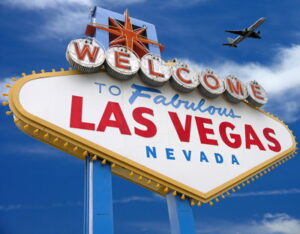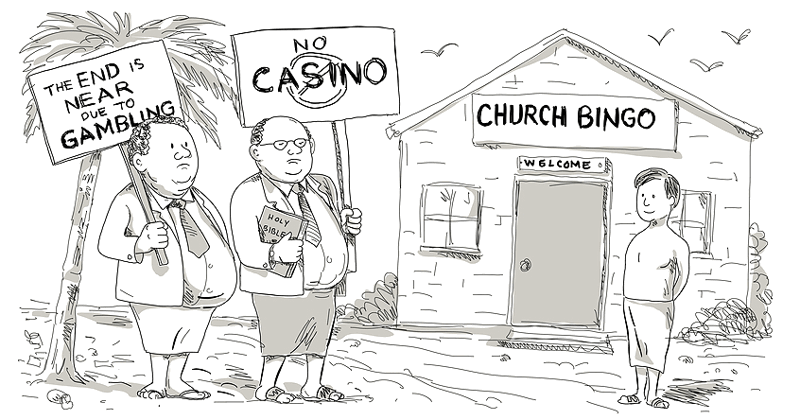 When it comes to gambling, each country has its own approach to how it is thought of as an activity. The various societies treat it differently from one another in terms of how it is perceived and whether those who engage in it are considered to be pariahs or simply a part of the crowd.
When it comes to gambling, each country has its own approach to how it is thought of as an activity. The various societies treat it differently from one another in terms of how it is perceived and whether those who engage in it are considered to be pariahs or simply a part of the crowd.
There are a huge amount of countries around the world where gambling is legal, so it would be all but possible to consider them all in the same article. Instead, we’re going to concentrate our focus on what you might think of as being the ‘biggest’ countries where gambling is a factor.
That means looking at the United Kingdom and the United States of America, as well as the rest of Europe and other major countries such as Russia, India and China. How is gambling thought of in some of those cultures compared to others?
From a societal point of view, it is worth considering how those that gamble are thought of compared to those that choose not to do so. In some cultures, such as the UK and certain parts of America, gambling is positively encouraged in some parts and not in others. Little wonder, then, that there is no global consensus around the issue.
What Do We Mean By ‘Societal & Cultural’?
 The first thing that is important to look at here is what it is that we mean when we’re talking about societal and cultural differences. Culture is, in essence, a shared group of thoughts and values that can be represented in numerous different ways. It can be through rituals, attitudes and beliefs, as well as via symbols.
The first thing that is important to look at here is what it is that we mean when we’re talking about societal and cultural differences. Culture is, in essence, a shared group of thoughts and values that can be represented in numerous different ways. It can be through rituals, attitudes and beliefs, as well as via symbols.
The culture of one place is likely to be extremely different to another, as anyone that has visited Thailand, say, and been expected to take their shoes off when entering a building of importance will understand, presuming they don’t do that at home.
There is obviously a link between societal and cultural issues. That being said, there can be different cultures within societies in the same geographical locations. People from Liverpool, as an example, consider themselves to be ‘Scouse, not English’.
They live in England, geographically, but will think of themselves to be culturally European rather than English. This will affect how Scousers tend to view things such as the monarchy, the country’s relationship with the European Union and will lead to a natural mistrust of authority, such as the ruling government.
Why It Matters

As well as knowing what we’re talking about, another important question is why it matters. The answer is that cultural and societal differences can have an impact on how it is that people will view the likes of gambling as an overall activity, how often you gamble and even the type of gambling that you engage in.
It is also fair to say that how different societies and cultures view gambling can have an impact on how harmful gambling is treat. If you have a problem with gambling, are you shunned by the society that you’re a part of or offered help?
Some societies will view gambling as being shameful, with those that engage in it all but excluded from the society as a result. Some will see no such issue with placing a few bets, but will struggle to understand when someone develops a problem with their gambling and not know how to handle the consequences of that.
Whilst gambling attitudes can shift over time, the truth is that societies that have tended to shun it is an activity will struggle to adopt to it being introduced, either because of a change of rules or laws in the country or because of a move somewhere else.
United Kingdom
 It is fair to say that the UK’s attitude towards gambling is a fascinating one. On the one hand, British people have long had an open approach to placing bets. It has always been the case that people in the United Kingdom have gambled, to the point that the Unlawful Games Act was signed in 1541 to ban gambling as it was felt that it was interfering with military training.
It is fair to say that the UK’s attitude towards gambling is a fascinating one. On the one hand, British people have long had an open approach to placing bets. It has always been the case that people in the United Kingdom have gambled, to the point that the Unlawful Games Act was signed in 1541 to ban gambling as it was felt that it was interfering with military training.
It wasn’t really enforced, however, if for no other reason than too many people gambled for it to become something that could be outlawed. There have long been betting parlours and other such operations working in the UK.
On the other hand, there has definitely been a degree of snobbishness around gambling. For a long time, it was only legal to place bets with on-course bookmakers. This meant that it was all but guaranteed that only the rich could gamble legally, given the fact that it was only the better off that could afford to go to racecourse.
There is also the fact that a survey in 2019 found that 82% of those surveyed felt that there were too many opportunities to gamble, with 73% of people believing that gambling was ‘dangerous for family life’. It did, though, show a shift in attitudes.
Here is how people responded to the survey over the previous years to 2019:
| Question | Response In Year To December 2019 | Response In Year To December 2018 | Response In Year To December 2017 | Response In Year To December 2016 |
|---|---|---|---|---|
| Too many opportunities to gamble | 82% | 79% | 80% | 78% |
| Gambling is dangerous to family life | 73% | 71% | 71% | 69% |
| Gambling should be discouraged | 62% | 58% | 57% | 55% |
| People should be allowed to gamble whenever they want | 60% | 62% | 64% | 67% |
| Most who gamble are sensible in doing so | 36% | 36% | 39% | 41% |
| It would be better if gambling was completely banned | 29% | 25% | 25% | 23% |
| Gambling livens up life | 26% | 28% | 28% | 32% |
| Gambling is, on balance, good for society | 13% | 13% | 15% | 15% |
As you can see, it is impossible to talk about societal attitudes towards gambling without acknowledging that the can change from year to year. More people believe that banning gambling altogether would be good for society in 2019 than did so in 2016.
Does that mean that society as a whole would like to see gambling completely removed? Obviously not, when you consider that it was only 15% of respondents that said that, but it is clear that there was a shift towards being stricter over gambling across a short period of time.
The Rest Of Europe
 It is, of course, really difficult to lump all of Europe in together. There are 44 countries in Europe, according to the United Nations, with one of them being Russia, which we’ll be looking at separately. Equally, we’re not going to look at each of the 44 countries separately as that would just take too much time. Instead, it is helpful to look at how the attitudes of those in Europe differ to the residents of the Netherlands.
It is, of course, really difficult to lump all of Europe in together. There are 44 countries in Europe, according to the United Nations, with one of them being Russia, which we’ll be looking at separately. Equally, we’re not going to look at each of the 44 countries separately as that would just take too much time. Instead, it is helpful to look at how the attitudes of those in Europe differ to the residents of the Netherlands.
That might seem an odd choice, but the Netherlands legalised online gambling in 2021 and YouGov collected date on how Dutch adults felt about the matter in comparison to other Europeans.
You can see that gambling in general was viewed more liberally in the Netherlands than in the rest of Europe, in spite of the fact that Dutch adults felt that more needed to be done to protect people and that they generally don’t tend to place as many bets themselves as their European counterparts.
The European results were an average of the answers from 25,314 people from Belgium, Denmark, France, Germany, Greece, Italy, Netherlands, Norway, Poland, Portugal, Spain, Sweden and the United Kingdom, whilst a representative figure of 1,885 Dutch people were spoken to.
| Statement | % of Adults who agree in Netherlands | % of Adults who agree in Europe |
|---|---|---|
| Gambling firms don’t take problem gambling seriously | 62% | 61% |
| The government should do more to protect those that gamble | 54% | 49% |
| Gambling shouldn’t be legal | 25% | 27% |
| I very much enjoy betting | 20% | 31% |
| It’s fine for sports teams, competitions and athletes to be sponsored by betting firms | 24% | 18% |
| I’m interested in betting on live sports | 16% | 14% |
| I’m interested in betting on eSports | 10% | 13% |
| I’d bet more often if it was easier to place bets | 13% | 11% |
Russia
 If you’ve ever heard the phrase ‘Russian roulette’, you’d be forgiven for thinking that the Russians loved gambling. In reality, things are much more complex than that. Russian society has been re-structured countless times over the years, resulting in the prevailing attitude towards gambling as an activity changing on a regular basis. Interestingly, Russian women appear to hold more positive attitudes than men towards the lottery. Whether Russian people held positive attitudes towards gambling in general appeared to be linked to whether they had more liberal opinions overall.
If you’ve ever heard the phrase ‘Russian roulette’, you’d be forgiven for thinking that the Russians loved gambling. In reality, things are much more complex than that. Russian society has been re-structured countless times over the years, resulting in the prevailing attitude towards gambling as an activity changing on a regular basis. Interestingly, Russian women appear to hold more positive attitudes than men towards the lottery. Whether Russian people held positive attitudes towards gambling in general appeared to be linked to whether they had more liberal opinions overall.
That, of course, isn’t all that surprising. Gambling is something of a liberal activity, given that it requires to you feel free enough to want to spend your money knowing that you’re more likely to lose it than not. Officially, gambling is banned in Russia. That doesn’t mean that it can’t be enjoyed unofficially, however, and Russians know how to take part in the illicit like the best of them. Family members will play card games with each other, whilst it doesn’t take much for a Russian to say something like “I bet you I’m right!” to a friend during an argument.
Casinos opened at a rate of knots after the fall of the Soviet Union, largely thanks to the fact that gambling was seen as an easy way to make money during economically and politically unstable times. Who it was that was making the money might well explain why the attitudes towards gambling weren’t always the same throughout the different parts of Russian society. Gambling legislation Federal law N 244-FZ is what dictates what forms of gambling are legal where, with ‘Gambling Zones’ in place around the country in order to give people opportunities to place bets legally.
United States of America
 It goes without saying that the United States of America is a country of contradictions. Some of the poorest people in American society will argue until they are blue in the face that free healthcare is an awful thing, in spite of the fact that they would benefit the most. Those opposed to abortion declare that life is sacrosanct, but are entirely unwilling to do anything in order to curb the excess use of guns in the country. The fact that the majority of states are bigger than the United Kingdom helps to explain why there is no one thought around gambling in the country.
It goes without saying that the United States of America is a country of contradictions. Some of the poorest people in American society will argue until they are blue in the face that free healthcare is an awful thing, in spite of the fact that they would benefit the most. Those opposed to abortion declare that life is sacrosanct, but are entirely unwilling to do anything in order to curb the excess use of guns in the country. The fact that the majority of states are bigger than the United Kingdom helps to explain why there is no one thought around gambling in the country.
The existence of the likes of Las Vegas and Reno show that there is an appetite for gambling in the US, but the fact that other states have banned it altogether shows that it isn’t an easy topic to get your head around. It was a popular pastime during the country’s more formative years, but by the end of the 19th century attitudes towards it had begun to change, largely due to moral and ethical reasons that saw casinos and racetracks forced to close. Some believe that closing the casinos was even a prerequisite to New Mexico and Arizona being allowed to join the Union.
Whilst gambling was banned online in America, there were companies being formed that created online slots and other forms of electronic gambling that could be used in countries where it was legal. It wasn’t until 2018 that the Supreme Court struck down federal law on gambling online, opening it up as a thing to more people. The popularity of it has exploded, showing the extent to which gambling is seen as something that plenty of people have entirely liberal attitudes towards, even whilst other sections of the same society view it as being a great sin and to be avoided.
India
 From the days of the colonial rule of India, gambling has been a popular pastime in the country. The problem is that the only legal forms of gambling in the country are state-run lotteries in some of the states, horse racing and rummy card games. There are casinos, but only in two of the states of India.
From the days of the colonial rule of India, gambling has been a popular pastime in the country. The problem is that the only legal forms of gambling in the country are state-run lotteries in some of the states, horse racing and rummy card games. There are casinos, but only in two of the states of India.
This, though, doesn’t mean that not many people in India gamble, but instead that there is a huge illegal gambling market in the country. This means that problem gambling is a big issue in the country, with cultural and societal disapproval of it leading to people often hiding their issues.
As with every country around the world, gambling in India is a leisure activity for most, with no harm linked to it. For some, though, it can develop into a problem and the somewhat closed off nature of the attitude of many Indian people to gambling means that getting help isn’t easy. The likes of cricket and football are amongst the most popular things to bet on, but most of that is done illegally because of the country’s overall attitudes to such forms of betting.
It is not something that is accepted by many of the societies and cultures in the country.
China
 If you’ve ever been to a casino in the United Kingdom then you will likely have noticed that they are very popular with Chinese bettors. Link that to the explosion of gambling in Macau over the years and you’d be forgiven for thinking that betting was an extremely popular pastime in the country. The truth is that it is popular, but also illegal in most parts.
If you’ve ever been to a casino in the United Kingdom then you will likely have noticed that they are very popular with Chinese bettors. Link that to the explosion of gambling in Macau over the years and you’d be forgiven for thinking that betting was an extremely popular pastime in the country. The truth is that it is popular, but also illegal in most parts.
The interesting thing about China is that gambling is a form of social expression, often coming out at Chinese New Year, as well as other important occasions such as birthdays and weddings, approved of by the majority.
It is the government of China that appears to disagree with gambling more than the people that live in the country. It is, perhaps, because of the liberal nature of gambling as an activity that means that it is seen as being a bad thing by a controlling government. The populace itself is not against gambling, but the fact that it is largely illegal means that getting help with a gambling problem is likely to be difficult for many.
It is entirely reasonable to surmise that the cultural and societal attitudes towards gambling in China are extremely complex thanks to the government’s approach to it.